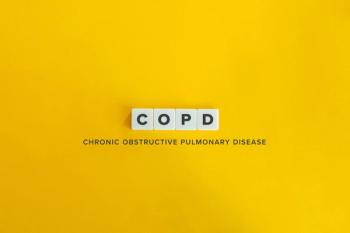
Acute Cessation May Help Improve Lung Functioning in Regular E-Cigarette Users
Exhaled carbon monoxide in vape users significantly decreased between their first and third clinical visits.
Acute cessation of vaping devices in regular e-cigarette users may help improve markers of lung function impairment, according to research presented at the 2023 American Thoracic Society International Conference, held from May 19 to 24 in Washington, DC.1
In Canada, e-cigarette usage has been steadily increasing. The prevalence of vaping among young adults aged 20-24 rose to 43% in 2020, up from 30% in 2015. New research continues to show that vaping can impact several biological and physiological markers associated with an increased risk of lung inflammation and disease.
However, it is not currently known if cessation from vaping can help reverse any of the negative associated effects. In a currently ongoing interventional trial, investigators recruited participants in order to study the impact of acute vaping cessation.
“We are hopeful that providing such data to regular e-cigarette users will increase their knowledge of associated harm and motivation to quit,” the researchers wrote.
The study cohort included 30 participants who reported vaping on a regular basis, which was defined as vaping on 20 or more of the past 30 days. Participants were aged 19 to 35 and were included regardless of a pre-existing motivation to quit. However, participants were excluded if they reported any tobacco cigarette or cannabis use.
Participants attended 4 consecutive clinical visit days, with a 72-hour period of vaping cessation starting at the first visit. At each visit, exhaled carbon monoxide (eCO), fractional exhaled nitric oxide (FeNO), and spirometry were assessed.
Investigators found that eCO significantly decreased from visit 1 to 3. The ratio of forced expiratory volume in 1 second to the forced vital capacity (FEV1/FVC) increased from 0.81 to 0.84 from visit 1 to 4. FeNO decreased from Visit 1 to 4, but it was also not statistically significant.
“Our preliminary data suggest an improvement in FEV1/FVC ratio and FeNO, and a decline in eCO, following a period of acute vaping cessation in those who previously vaped nicotine regularly, but conclusions remain premature until study completion,” the authors concluded. “If validated in this context, these convenient sampling methods should be considered in future studies investigating the impact of acute vaping cessation on lung function and inflammation.”
Reference
1. Afshar T, Hashimoto A, Shellington E, et al. Acute Vaping Cessation Improves Markers of Lung Function Impairment. Presented at: American Thoracic Society International Conference; May 19-24, 2023; Washington, DC. Poster 2617.
Newsletter
Pharmacy practice is always changing. Stay ahead of the curve with the Drug Topics newsletter and get the latest drug information, industry trends, and patient care tips.























